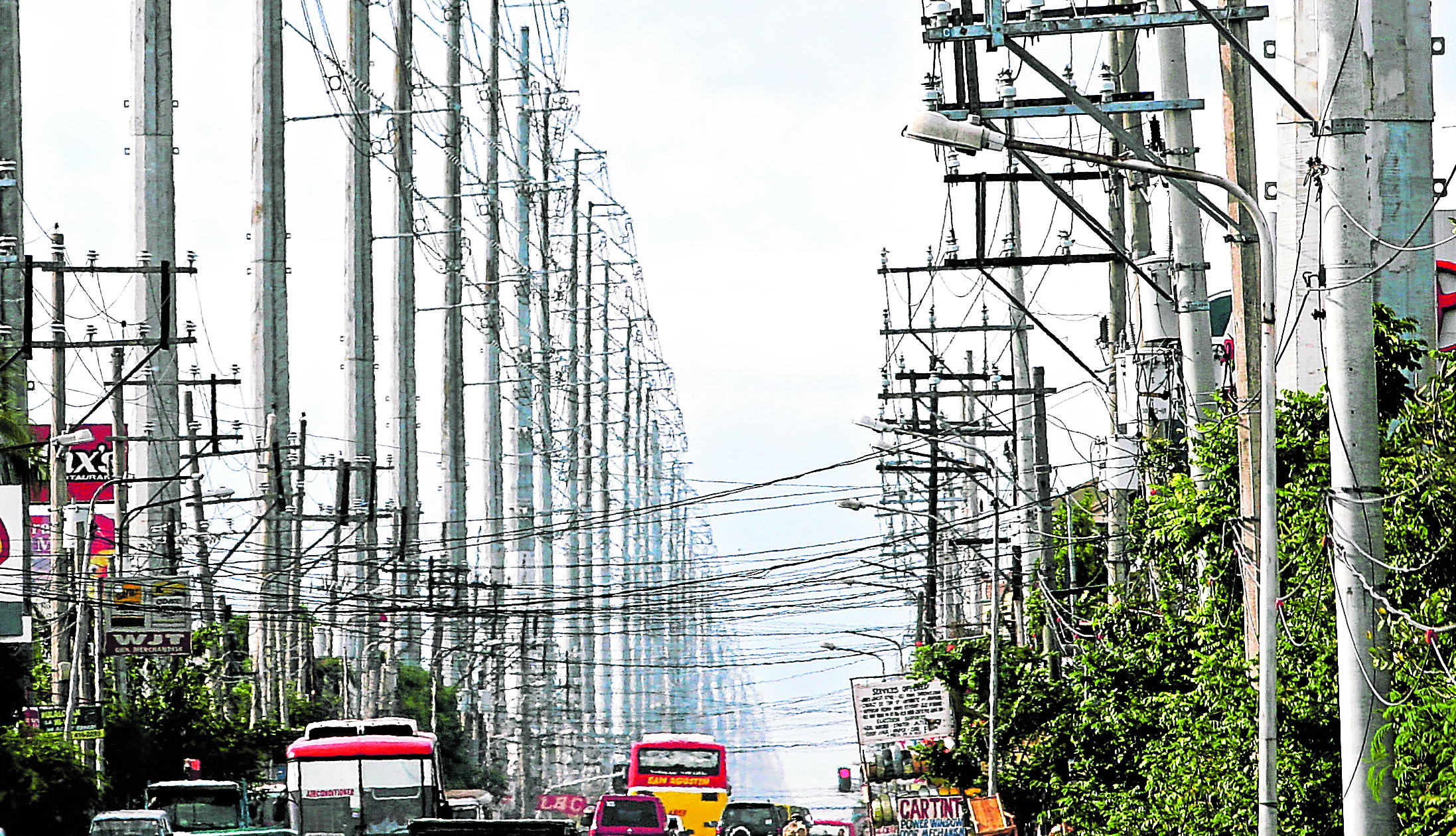
TOWERING SIGHT High-voltage power transmission lines are seen along Aguinaldo Highway in Dasmariñas, Cavite. —INQUIRER FILE PHOTO
MANILA, Philippines — The power situation in Luzon may remain spotty because power plants that recently shut down are not expected to be operational until next week, but the power supply is expected to improve by June 11.
This was the assessment of energy officials who faced lawmakers on Friday to brief the House energy committee on the rotational brownouts that plagued parts of Luzon earlier this week.
“From the end of this week until next week, we see that if there are no power plants rejoining the grid, we are still below the red line. So our regulating reserves are still not enough, and we will still have a red alert,” said Mario Marasigan, director of the Electric Power Industry Management Bureau.
“Hopefully, in the coming weeks up to July 1, we will have plants coming in and our consumption will go down, so we can get through the red alert. We won’t have rotational brownouts anymore, but we are still on yellow alert,” Marasigan said.
From May 31 to June 2, the National Grid Corporation of the Philippines (NGCP) placed the Luzon grid under red and yellow alerts as demand spiked but the power supply was insufficient due to outages in several power plants.
The NGCP had warned of rotational brownouts for the first week of June due to thinning power supply. But the Department of Energy (DOE) said on Thursday that the Luzon power grid was under normal system condition.
During Friday’s briefing, the DOE said the unplanned outages were due to five coal-fired power plants going offline at different points in time since last year.
These include Mariveles Units 1 and 2 plants, Pagbilao Unit 2 plant, Sual Unit 2 plant and the Calaca Unit 2 plant.
The five unplanned or forced outages meant a lost capacity or supply of 2,019 megawatts.